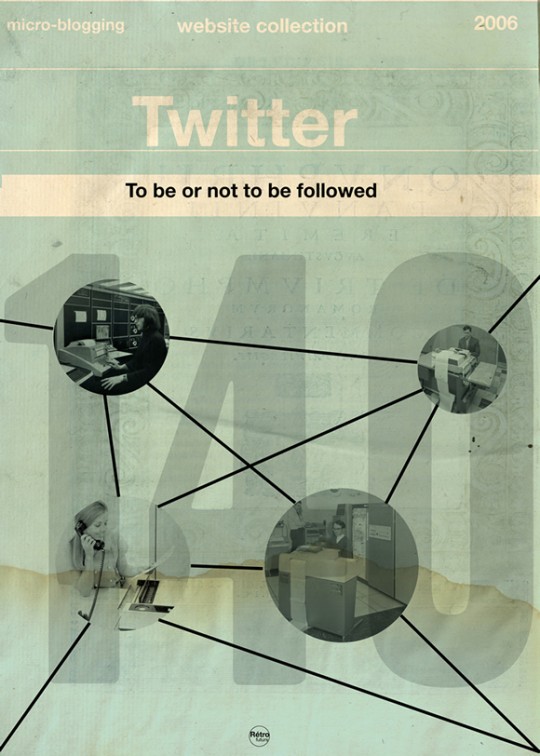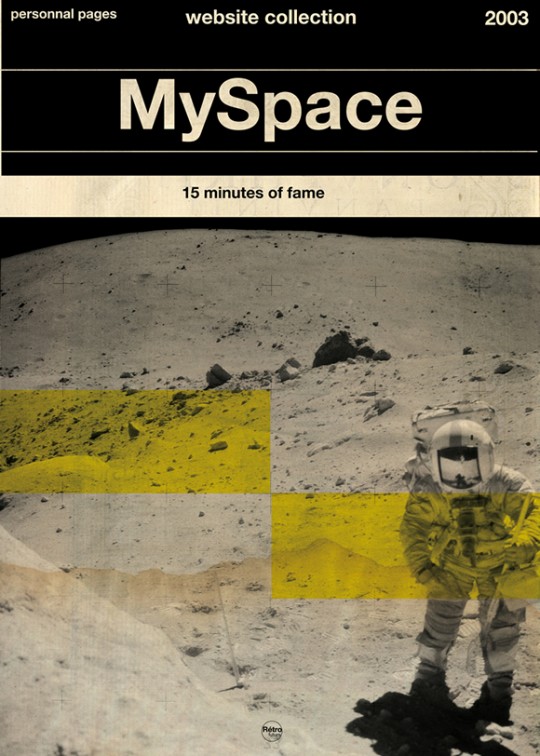We never really question the privacy issue when signing up for another Google-service, do we? #google #privacy
Posted on | December 15, 2009 | No Comments
Over at Slashdot, a user named hubert.lepicki has posted the following query, that has sparked an interesting discussion that is well worth checking out. We never really question these issues when signing up for another google-service, do we?
I use Google all the time. I keep two GMail tabs open when I’m online (one is private, another is a corporate account), I use Google search, and recently I switched to the Chromium browser. Google’s services are fast, easy to use and usually reliable. At the same time, I know Google is tracking everything I do; I can see it in search results or their ads on web pages, which tend to match my interests. After the recent post by Mozilla’s community director suggesting Bing has a better privacy policy (a response to questionable comments from Google CEO Eric Schmidt), I started to… ‘google’ ways of keeping my private data safe while browsing and using Google services. The results weren’t very helpful, so I ask you, Slashdotters: how do I stay anonymous to Google while using their services?
Read or join the discussion here.
Tags: big brother > Eric Schmidt > Google > hubert.lepicki > Privacy > Slashdot
Web 2.0-services as old book covers
Posted on | December 14, 2009 | No Comments
For everyone with a weak spot for the graphical aesthetics of book covers in the 70’s (which includes me), the mashup of those with current web 2.0-services by artist Stéphane Massa-Bidal (aka Hulk4598, or Rétrofuturs) is both hilarious and beautiful. Below is a couple of my favorites – and you can see the entire series here (via Brainpickings).


Tags: 70's aesthetics > book cover > Hulk4598 > myspace > Rétrofuturs > Stéphane Massa-Bidal > Twitter > web2.0
Street art censorship in Vancouver, Canada
Posted on | December 11, 2009 | No Comments
This is something I have never heard of before: Authorities taking action to remove politically offensive street art. Nevertheless, this is what has happened in Vancouver, Canada, where an art gallery owner has received an order to remove a controversial mural on the outside walls of the gallery. Local newspaper The Globe & Mail writes: “The city of Vancouver has ordered the removal of a mural hanging outside a Downtown Eastside gallery depicting the Olympic rings as four sad faces and one smiley face. The gallery says in 10 years, it has never before been asked to remove any work.”

Read the entire story here.
Tags: art gallery > Canada > censorship > murial > street art > The Globe and Mail > Vancouver
Each American Consumed 34 Gigabytes Per Day In ’08
Posted on | December 10, 2009 | No Comments
On a more curious note, I stumbled upon this funny technology article today that tells about a study at University of California estimating that the information consumption per American per day is stunning 34 gigabytes.
It reads: “Metrics can get really strange — especially on the scale of national consumption. Information consumption is one such area that has a lot of strange metrics to offer. A new report from the University of California, San Diego entitled ‘How Much Information?’ reveals that in 2008 your average American consumed 34 gigabytes per day. These values are entirely estimates of the flows of data delivered to consumers as bytes, words and hours of consumer information. From the executive summary: ‘In 2008, Americans consumed information for about 1.3 trillion hours, an average of almost 12 hours per day. Consumption totaled 3.6 zettabytes and 10,845 trillion words, corresponding to 100,500 words and 34 gigabytes for an average person on an average day. A zettabyte is 10 to the 21st power bytes, a million million gigabytes. These estimates are from an analysis of more than 20 different sources of information, from very old (newspapers and books) to very new (portable computer games, satellite radio, and Internet video). Information at work is not included.’ Has the flow and importance of information really become this prolific in our daily lives?”
The article is available at Slashdot – and read the following interesting discussion (do not get scared away by the first comment, even if it did also make my geek-alarm go off: ‘How much of that is redirected to /dev/null?’ – *lol*).
Danish copyright activist challenges conflicting DRM-legislation
Posted on | December 4, 2009 | No Comments
Boing Boing writes: “In Denmark, it’s legal to make copies of commercial videos for backup or other private purposes. It’s also illegal to break the DRM that restricts copying of DVDs. Deciding to find out which law mattered, Henrik Anderson reported himself for 100 violations of the DRM-breaking law (he ripped his DVD collection to his computer) and demanded that the Danish anti-piracy Antipiratgruppen do something about. They promised him a response, then didn’t respond. So now he’s reporting himself to the police. He wants a trial, so that the legality of the DRM-breaking law can be tested in court.”
Go Henrik! What an admirable way to challenge the idiocy of strict and unflexible copyright legislation.
Read the full piece on Boing Boing – as well as the discussions over at Slashdot.
Tags: Activism > Antipiratgruppen > Boing Boing > copyright > DRM > Henrik Anderson
Spanish activists issue manifesto on the rights of Internet users
Posted on | December 3, 2009 | No Comments
Triggered by the huge debate about ao. the so-called three strikes legislation in Europe, Spanish web activists lead by Javier “Barrapunto” Candeira have formulated a manifesto that express the fundamental rights of Internet users and the principles of net neutrality that so many citizens and non-profit advocacy groups across the globe are fighting to preserve while the web is still relatively open and non-commercially virginal.
Read the original posting in Spanish and in English.
Manifesto on the rights of Internet users
1 .- Copyright should not be placed above citizens’ fundamental rights to privacy, security, presumption of innocence, effective judicial protection and freedom of expression.
2 .- Suspension of fundamental rights is and must remain an exclusive competence of judges. This blueprint, contrary to the provisions of Article 20.5 of the Spanish Constitution, places in the hands of the executive the power to keep Spanish citizens from accessing certain websites.
3 .- The proposed laws would create legal uncertainty across Spanish IT companies, damaging one of the few areas of development and future of our economy, hindering the creation of startups, introducing barriers to competition and slowing down its international projection.
4 .- The proposed laws threaten creativity and hinder cultural development. The Internet and new technologies have democratized the creation and publication of all types of content, which no longer depends on an old small industry but on multiple and different sources.
5 .- Authors, like all workers, are entitled to live out of their creative ideas, business models and activities linked to their creations. Trying to hold an obsolete industry with legislative changes is neither fair nor realistic. If their business model was based on controlling copies of any creation and this is not possible any more on the Internet, they should look for a new business model.
6 .- We believe that cultural industries need modern, effective, credible and affordable alternatives to survive. They also need to adapt to new social practices.
7 .- The Internet should be free and not have any interference from groups that seek to perpetuate obsolete business models and stop the free flow of human knowledge.
8 .- We ask the Government to guarantee net neutrality in Spain, as it will act as a framework in which a sustainable economy may develop.
9 .- We propose a real reform of intellectual property rights in order to ensure a society of knowledge, promote the public domain and limit abuses from copyright organizations.
10 .- In a democracy, laws and their amendments should only be adopted after a timely public debate and consultation with all involved parties. Legislative changes affecting fundamental rights can only be made in a Constitutional law.
Read the original posting in Spanish and in English.
Tags: Activism > hiperactivo.com > Internet User Manifesto > Javier "Barrapunto" Candeira > Net neutrality
Where’s Rob? Improv Everywhere strike again
Posted on | December 1, 2009 | No Comments
I’ve been following the activities of New York-based improvisation activist group Improv Everywhere with great joy over the last couple of years. Their latest installment takes place in New York’s Madison Square Garden – where “Rob” get’s lost. So hilarious and also interesting to see how it’s possible to engage a public crowd.
Improv Everywhere has more on the event – including behind-the-camera-planning-insight – at their website.
Tags: crowd control > Improv Everywhere > Madison Square Garden > New York > public
Man arrested for failing to tweet
Posted on | November 23, 2009 | No Comments
Though Twitter is rapidly growing as a communication tool – as well as a social network service – it’s significance seemed to reach an unprecedented peak today, as it was announced that a man in the United States was actually arrested for failing to send a tweet as commanded by the police. Yes, it sounds insane, but the circumstances are indeed special. However, I am absolute sure that the arrest violates an abundance of laws, even in the US. I look forward to hear follow-up’s on this one – anyone?
Read the story here on TechRadar.
Tags: arrest > law violation > police > social media > tweet > Twitter > United States
‘The Iraq Center’ – autonomous initiative to counter Danish government failure
Posted on | November 18, 2009 | No Comments
One of the major national newspapers in Denmark, Politiken, has – somewhat contrary their not particularly leftist ideology – launched an autonomous (and may I say impressive) initiative to try to save some of the remaining Iraqi interpretors that the Danish government has rejected for asylum and started deporting back to war-torn Iraq to an uncertain and dangerous future (see below for round-up of the story so far).
The initiative from Politiken, spearheaded by cheif editor Thøger Seidenfaden, is called Irakcentret (‘The Iraq Center’) and is a job agency that aims to hire as many of the refugees on full-time basis, as that by law will grant them a work visa and thereby a permit to stay. Danish migration laws state that if a person can present proof of full-time employment at a wage equal to that of the average Dane (approx. 33,000 Danish Kroners a month, equal to 4,400 Euros) then they are entitled to a working visa.
The Iraq Center will give the refugess work in areas that match their education, and furthermore make efforts to setup some of the Iraqies to give presentations at relevant venues in education, politics, media and activism in order to spread knowledge of ao. the horrible situation they and their families are in due to hostile and human-rights violating Danish immigration legislation.
Irakcentret is run entirely on donations, so the newspaper is collecting funds from sponsors, readers and supporters.
I just chipped in and encourage everyone else to do the same – options include bank transfer, creditcard payment and giro. Unfortunately, there is no English page at present – or options for foreigners to contribute. Hopefully that will come soon.
So far, approx. 500,000 Danish Kroners have been collected, but more is needed in order to help all of the remaining Iraqies.
Quick round-up of the background story
Several hundred iraqies used to work for the Danish military as interpreters back when Denmark was engaged alongside the American and British troops in Iraq, and once the Danish troops were pulled out, these iraqies workers fled to Denmark to apply for asylum – because without protection in their native country of Iraq, they would have little chance to protect themselves and their families from the militia because of their work to help the occupying forces.
Now, fast forward a couple of years, the Danish government – headed by Church- and Integration Minister Birthe Rønn-Hornbæk – have decided not to grant asylum to these people and their families and have started deporting them back to Iraq, by reference to an alleged agreement with the Iraqi prime minister, Nouri al-Maliki. However, al-Maliki has publicly denounced the existence of such an agreement and will thereby not grant the deported any sort of protection.
Huge demonstrations and civil disobedience have taken place in Denmark because of this horrible decision by the Danish conservative/right-wing government, but so far no actions have been able to the governments trajectory – and save the Iraqies and their families from deportation.
Hopefully Irakcentret will be able to change that.
Tags: Birthe Rønn-Hornbech > Brorson Church > Brorsonkirken > deportation > human rights violation > illegal > immigration > Irakcentret > irakiske tolke > Iraq Center > Iraqi interpretors > Nouri al-Maliki > Politiken
A call for respect and fullfilling of the rights of citizens and artists in the digital era
Posted on | November 15, 2009 | No Comments
During the last years, innumerous organisations, activists, researchers and others savvy of the Internet have been fighting to create awareness of the importance of retaining net neutrality in the online sphere, where a myriad of commercial interests are using every possible means to gain dominance.
Yet another large-scale initiative of advocacy is now taking place in a joint effort to gain the necessary attention to this highly important matter. As also presented in the latest digest from the Nettime mailinglist, a “Charter for Innovation, Creativity and Access to Knowledge” has now been launched, shaped at ao. the First International Forum on Free Culture and Access to Knowledge gathering that took place October 29 to November 1 this year in Barcelona.
“A broad coalition from over 20 countries, of hundreds of thousands of citizens, users, consumers, organizations, artists, hackers, members of the free culture movement, economists, lawyers, teachers, students, researchers, scientists, activists, workers, unemployed, entrepreneurs, creators has come together to campaign and organise for respect and the fullfilling of the rights of citizens and artists in the digital era,” writes Mayo Fuster of European University Institute in his Nettime email.
Watch the brief charter viral video:
The charter can be downloaded here (pdf-format) – and more about the project in general can be read at the official website.
Tags: citizens rights > FCforum > Net neutrality > Nettime > web access



